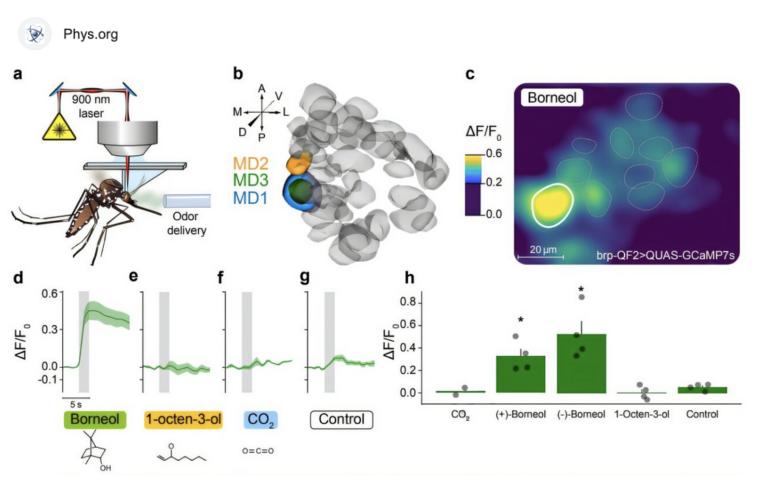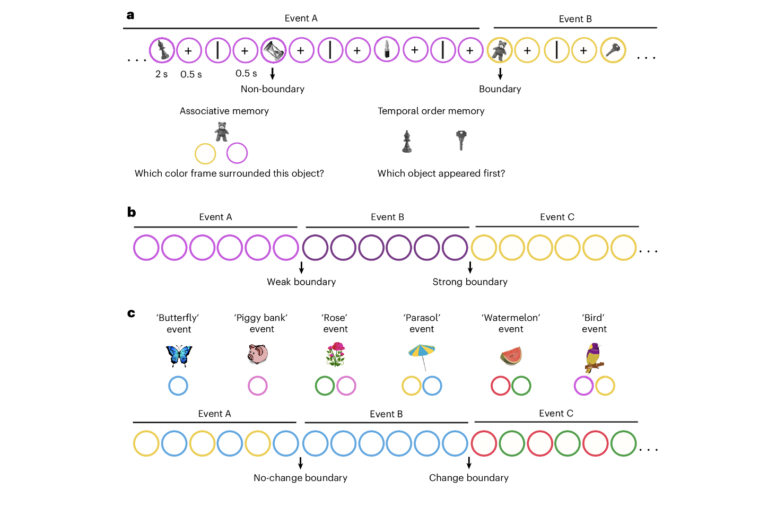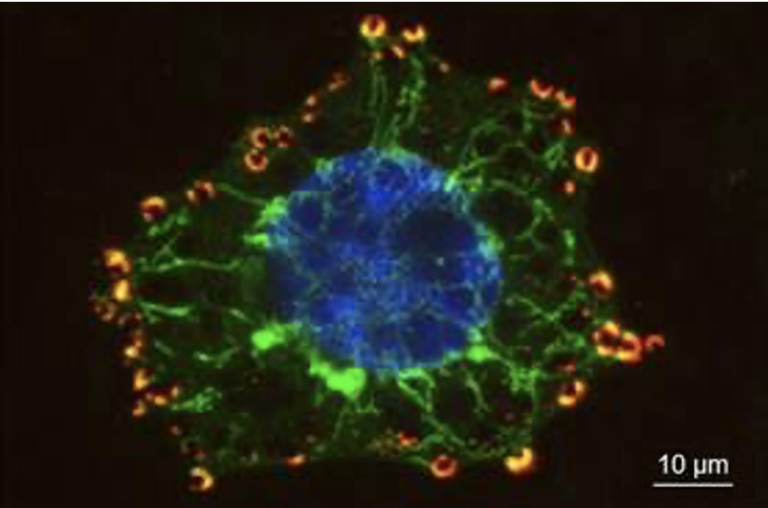TAU et Collège Tel-Hai : Covid-19, symptômes d'anxiété et de dépression en hausse chez les Israéliens

[:fr]
En octobre 2020, au plus fort du deuxième confinement, une personne sur trois en Israël déclarait souffrir de symptômes d’anxiété élevés ou très élevés et une personne sur cinq en Israël déclare souffrir de symptômes de dépression élevés ou très élevés. L’étude révèle que, depuis la première vague de Covid-19, la population a connu une augmentation significative des symptômes d’anxiété et de dépression. Une nouvelle étude menée par l’Université de Tel Aviv et le Collège universitaire et technologique de Tel-Hai montre que, depuis le déclenchement de la pandémie, les symptômes d’anxiété et de dépression ont considérablement augmenté.
L’étude révèle qu’au plus fort de la deuxième vague (octobre 2020), près d’une personne sur trois en Israël (29%) souffrait de symptômes d’anxiété extrêmes ou très graves. Les données présentent une forte augmentation du taux d’anxiété par rapport au premier verrouillage pandémique (mai 2020), lorsque près d’un répondant sur quatre (23%) a signalé des niveaux d’anxiété moyens à élevés ou très élevés. En comparaison, un examen du niveau d’anxiété en Israël en 2018, environ deux ans avant la pandémie, avait montré que seule une personne sur dix (environ 12%) avait déclaré être très ou très très anxieuse.
| Levels of Anxiety | 2018 assessment | Exiting the first lockdown
(May 2020) |
Between lockdowns
(July 2020) |
Peak of the second lockdown (October 2020) |
| Low and very low | 60% | 41% | 35% | 36% |
| Medium | 28% | 36% | 38% | 35% |
| High and very high | 12% | 23% | 27% | 29% |
Dans l’étude, menée auprès d’un échantillon de 804 répondants, les chercheurs ont surveillé la façon dont la population juive adulte a fait face à la crise de Covid-19. Les données ont également montré que, au cours de l’année écoulée, le niveau de dépression a fortement augmenté : au sommet de la deuxième vague (octobre 2020), l’étude a révélé qu’un répondant sur cinq (20%) en Israël a signalé un niveau élevé ou très niveau élevé de dépression. Lorsque le verrouillage après la première vague a été levé (mai 2020), seuls 14% des répondants (un sur sept) ont signalé un niveau de dépression élevé ou très élevé. En comparaison, en 2018, seulement 9% de la population (moins d’une personne sur dix) a déclaré un niveau de dépression élevé ou très élevé.
| Level of Depression | 2018 assessment | Exiting the first lockdown
(May 2020) |
Between the lockdowns
(July 2020) |
The height of the second lockdown (October 2020) |
| Low and very low | 70% | 59% | 57% | 51% |
| Medium | 21% | 27% | 25% | 28% |
| High and very high | 9% | 14% | 18% | 20% |
Selon les chercheurs, « l’étude démontre l’impact de la crise du Covid-19 et les graves dommages causés à la résilience mentale du public. La forte augmentation du taux de personnes souffrant de symptômes d’anxiété et de dépression est très inquiétante. Pour la plupart, cela suggère des dommages mentaux non visibles de l’extérieur donc non correctement traités. Il est important de souligner que l’anxiété, et en particulier la dépression, sont susceptibles d’affecter négativement le fonctionnement quotidien de la population, comme le maintien des compétences à la maison, au travail, dans la vie communautaire, pour prendre soin de sa santé… Plus les personnes souffrent de symptômes de dépression, moins elles sont motivées et disposées à coopérer et à se conformer aux consignes du gouvernement en matière de distanciation sociale ou des autres restrictions.
En outre, l’étude soulève d’autres questions telles que les institutions psychologiques et psychiatriques d’Israël sont-elles capables de gérer un phénomène de cette ampleur et sont-elles prêtes à fournir un traitement efficace à une telle gamme de manifestations d’anxiété et de dépression ? Nous devons également nous demander si les personnes qui se sentent déprimées ou anxieuses essaient même d’obtenir de l’aide pour leur état mental. Le système de santé israélien dispose-t-il de moyens efficaces pour les identifier et les traiter tôt, avant que leur état ne s’aggrave ? De plus, quelles pourraient être les implications à long terme de ces effets sur le mental chez ceux qui en souffrent, pour leur environnement immédiat et pour le pays dans son ensemble ? Ces questions nécessitent une attention immédiate ».
L’étude a été menée par le Dr. Bruria Adini de l’Emergency and Disaster Management Department à la School of Public Health, Sackler Faculty of Medicine, Tel Aviv University, et le Prof. Shaul Kimhi, Prof. Yohanan Eshel, et le Dr. Hadas Marciano, et les chercheurs du Resilience and Stress Research Center, au Tel-Hai College.
Traduction Esther Amar pour Israël Science Info
[:en]
In October 2020, at the peak of the second lockdown, one in three people in Israel report being afflicted with high or very high anxiety symptoms and one in five people in Israel report suffering from high or very high symptoms of depression. The study reveals that, since the first wave of Covid-19, the population has been experiencing significant increase in symptoms of anxiety and depression.
A new study by Tel Aviv University and the Academic and Technology College of Tel-Hai shows that, since the outbreak of the pandemic, symptoms of anxiety and depression have increased significantly. The study reveals that at the peak of the second wave (October 2020), almost one in three people in Israel (29%) suffered extreme or highly extreme symptoms of anxiety. The data present a sharp increase in the rate of anxiety relative to the first pandemic lockdown (May 2020), when almost one in four respondents (23%) reported medium to high or very high levels of anxiety. In comparison, an examination of the level of anxiety in Israel in 2018, approximately two years prior to the pandemic, showed that only one person in ten (about 12%) reported being highly or very highly anxious.
| Levels of Anxiety | 2018 assessment | Exiting the first lockdown
(May 2020) |
Between lockdowns
(July 2020) |
Peak of the second lockdown (October 2020) |
| Low and very low | 60% | 41% | 35% | 36% |
| Medium | 28% | 36% | 38% | 35% |
| High and very high | 12% | 23% | 27% | 29% |
The study was led by Dr. Bruria Adini of the Emergency and Disaster Management Department at the School of Public Health, Sackler Faculty of Medicine, Tel Aviv University, and Prof. Shaul Kimhi, Prof. Yohanan Eshel, and Dr. Hadas Marciano, researchers at the Resilience and Stress Research Center, at Tel-Hai College. In the study, the researchers monitored the way members of the adult Jewish population coped with the Covid-19 crisis. The study was conducted among a sample of 804 respondents. The data also showed that, over the past year, the level of depression has risen sharply: at the peak of the second wave (October 2020), the study found that one in five respondents (20%) in Israel reported a high or very high level of depression. When the lockdown after the first wave was lifted (May 2020), only 14% of the respondents (one in seven) reported a high or very high level of depression. In comparison, in 2018, only 9% of the population (fewer than one in ten) reported a high or very high level of depression.
| Level of Depression | 2018 assessment | Exiting the first lockdown
(May 2020) |
Between the lockdowns
(July 2020) |
The height of the second lockdown (October 2020) |
| Low and very low | 70% | 59% | 57% | 51% |
| Medium | 21% | 27% | 25% | 28% |
| High and very high | 9% | 14% | 18% | 20% |
According to the researchers, « the study demonstrates the impact of the Covid-19 crisis and the severe damage to the public’s mental resilience. The sharp increase in the rate of people suffering from symptoms of anxiety and depression is very disturbing. For the most part, this suggests mental damage that is not outwardly visible, and is therefore not being properly treated. It is important to emphasize that anxiety, and especially depression, are liable to negatively affect the population’s daily functioning, such as maintaining the functionality at home, working, being active in community life, taking care of health, and so on. Above all, the more people suffer from symptoms of depression, the less motivated and willing they are to cooperate and comply with the government’s mandates on social distancing or other restrictions.
Furthermore, the study raises other questions such as: are Israel’s psychological and psychiatric institutions capable of handling a phenomenon of this scope and are they prepared to provide effective treatment to such a range of anxiety and depression manifestations? We must also ask ourselves whether people who feel depressed or anxious even try to get help for their mental state. Does the Israeli healthcare system have effective ways for identifying and treating them early, before their condition worsens? Moreover, what might be the long-term implications of these mental effects for those who suffer from them, for their immediate surroundings, and indeed for the country as a whole? These questions require immediately attention. »
[:]







